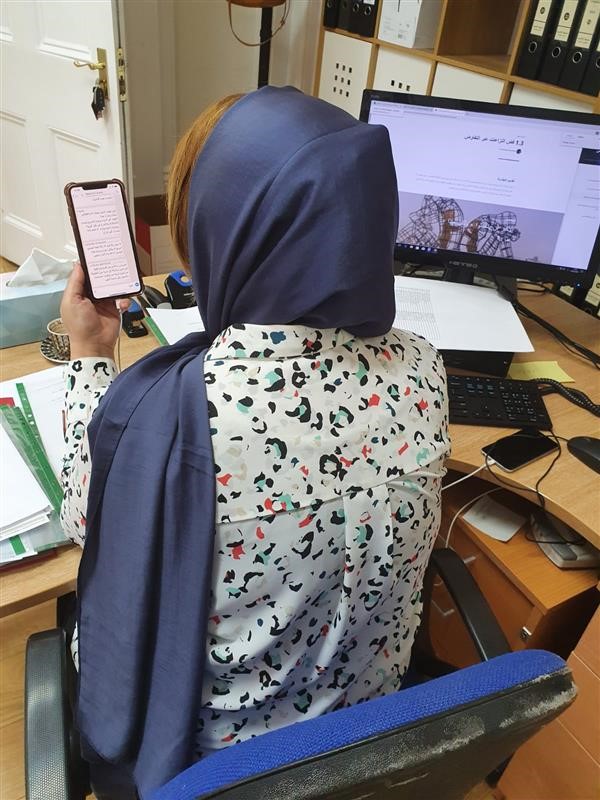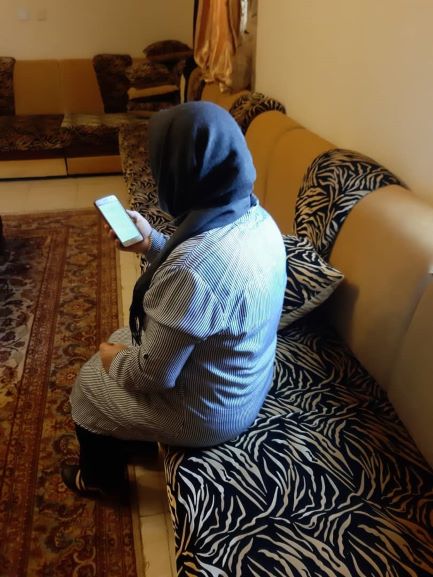News
Negotiation training in cooperation with UN Women
A third period of civil war within one decade has turned Libya into chaos and despair, as political negotiations have stalled. Heavy fighting, political disarray and constant uncertainty on how the conflict will evolve have had a huge effect on the lives ordinary people. When COVID-19 appeared, life became even further restricted and the lives of women, already very constricted in their mobility and threatened in their physical safety, came under more stress.
However, a network of women spread over the whole of Libya took matters in their own hands. They designed different activities to help people become aware of the threat of COVID-19, educated people on how to make disinfectants, helped in setting up quarantine houses for refugees at the border.
It is this group, the Libyan Women Network for Peacebuilding, that gets support from UN Women in their peacebuilding efforts, in order to strengthen their capacity and cooperation within the network. The Clingendael Academy was asked to deliver a training programme in peacebuilding and negotiation in March. Because of the COVID-19 crisis, it became impossible to board a flight to Tunis to train the women there.
UN Women in Libya is working to ensure that women have access to, lead and participate in peacebuilding processes including local reconciliation and mediation efforts. UN Women, in partnership with Clingendael, is looking to leverage the vast potential of Libyan women at the community level, ensuring that Libyan women are prepared for all eventualities and encouraged to lead, so that their experiences and cases of local mediation may be shared, promoted and learned from.
Begona Lasagabster – Country Representative for UN Women Libya in her introductory remarks emphasized that:
‘Women across divides play a crucial role in mobilizing actors for inclusive peacebuilding through collective action and mediation at the formal and informal levels. Supporting them in mobilizing support and enhancing their voices can contribute to resuming and continuing peace dialogue in a more inclusive way.’
Innovative online training

In May, Clingendael launched, in close cooperation with UN Women and Arabic interpreters, an unique, first-of-its-kind, tailor-made, five week intensive digital training for the Network’s members. Instead of interactive training sessions in a hotel conference room, the training was provided from the trainers’ kitchen tables in The Netherlands, to couches, offices and kitchen tables around Libya’s different regions. The trainers build an interactive website explaining different negotiation tools and concepts and trained the participants during interactive Zoom sessions and around the clock in an active WhatsApp group. As the group had to deal with unreliable internet connections due to power cuts and ongoing fighting, extra help was offered to make sure the participants could catch up later.
Overall, the training focused on effective preparation in negotiation processes (phase 1 according to the Clingendael methodology). As these Libyan women wanted to learn how it is possible to build peace when the main players are still raging war, the training focused on:
- How to understand the conflict they are in and how the tool of negotiation could be used in bringing people together.
- Understanding oneself and other parties as well as the role identity plays in conflict.
- Behavior in conflict situations and how to use Nonviolent Communication to avoid hate speech, a major problem in the current Libyan society.
Through individual and group exercises the lessons were applied to different levels of the ongoing conflict in Libya. The training was finished with a group exercise that tested all the newly learned skills, concepts and tools. We hope to continue working with this group in a follow-up where we can train the women offline.

During the final online training session one participant commented:
“This training strengthened our capacity for peace. The sessions were very targeted to our needs and they spoke to each one of us as peace builders. We needed this training to improve our work in peace processes. I enjoyed every minute of the sessions and the discussion groups. [We were in our homes], but it was like a training programme outside.”



